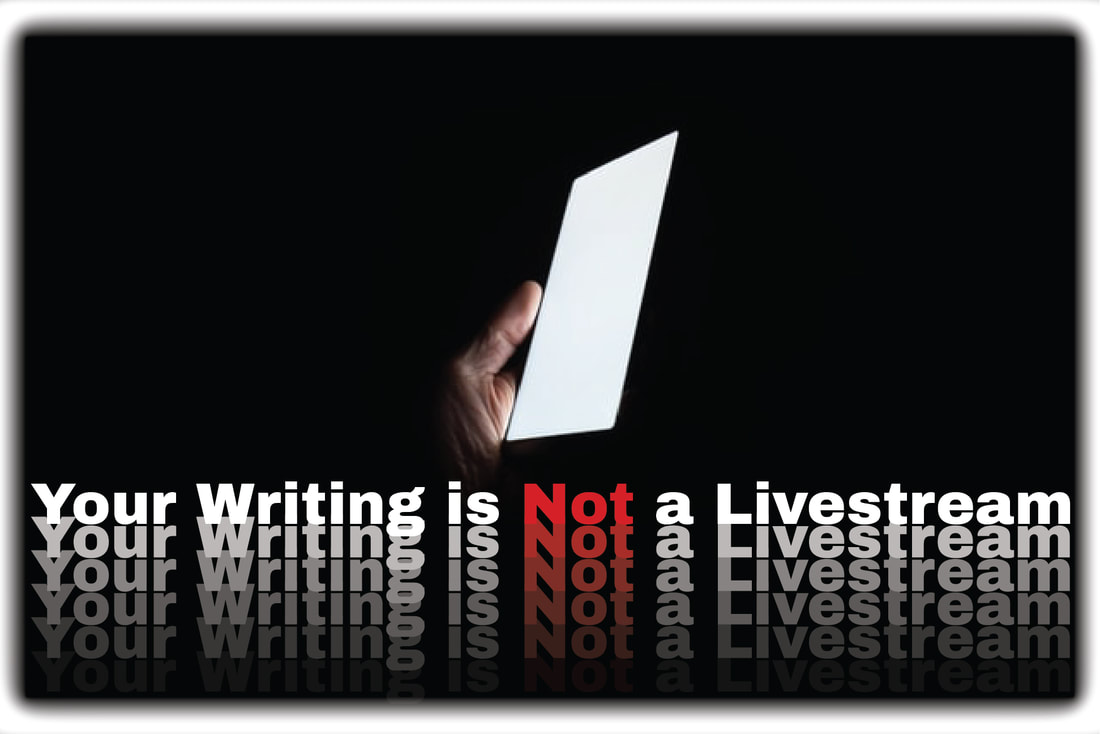|
Guest post by Vishaal Pathak Your Writing is NOT a LivestreamWriters new to the job, new to this scary world where their written word is meant for another pair of eyes – several, if they are lucky – are most scared of their screen, or whatever interface they’re using for capturing their thoughts (or just blankly staring at). Blank screens are scary indeed, but screens with a few words down, all the more. Take a deep breath, new writer. Relax. Your writing is not a livestream. No one’s reading it as we speak (or write). Your only reader at this point is you. Unless your device (or room) is bugged, in which case we have many, many bigger problems. The quality of your drafts will still not be one. Given, you yourself as a reader are tough to please – as you absolutely should be. You don’t take kindly to cliches, grammatical mistakes, poorly written dialogues, plotlines that are too obvious and sentences that feel they could use a relook. But your job as a reader must slightly lag your job as a writer. You won’t handover your first draft to your editor, would you? Your writing is not a livestream. Writing and editing drafts until they’ve been chiseled enough to be the finished product is akin to the multiple rehearsals that live performers go through before the opening night, the practice that athletes put in before the big game, the many hours pilots spend on simulators – you get the drift. The advantage in being a writer is, you almost never have to write a book live – so why not calm that inner critic? Let go of any disappointment (or worse, shame) you may have with how odd the sentence structure is at first. Resist the urge to cringe at how sloppy, half-cooked, patchy your ideas turn out initially. Remind yourself that writing is a tough job even for the best writers out there, and sometimes, it’s just a difficult day. Turn an ally to the writer in you. Leave yourself little notes and reminders of pending edits – tell yourself how you meant the sentence to be and promise to come by and fix it. Use placeholders/filler words in your sentences (that you will take care of later) with aplomb and stop apologizing to the nosy reader in you. Tell them to not sneak a peak in the chef’s kitchen until the dish is done. As a corollary, since your screen is not a livestream, and if the blank screen poses an insurmountable inertia, you may even begin writing for the day by filling your screen with whatever arbitrary, unrelated thoughts appear in your mind before you get around to writing what you’re really meant to. Remember, writing is just conversation with yourself (but also among the many characters living rent-free in that oddly creative, weird looking top shelf of yours). A characteristic of free-flowing conversations is that they begin somewhere and lead somewhere else. Just don’t get too carried away. To sum up, let the reader slightly get out of the way so the writer in you can do the job. Pick up the pen/pencil and notebook or crack your knuckles and get clickety-clicky tap-tappy on that device of yours.
2 Comments
Parul
7/7/2022 08:46:46 am
Well written article! 'what to do notes' for budding authors. All the authors , please treat this as gospel truth.life will be easy.
Reply
Vishaal Pathak
7/7/2022 08:55:36 pm
Thank you so much for your kind comment! Glad you liked the article and found it useful.
Reply
Leave a Reply. |
AuthorArielle Haughee is the owner and founder of Orange Blossom Publishing. Categories
All
|
Proudly powered by Weebly



 RSS Feed
RSS Feed